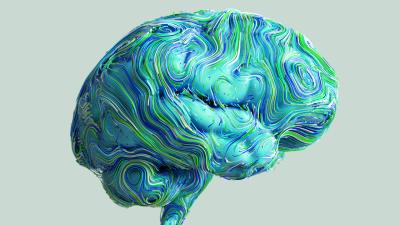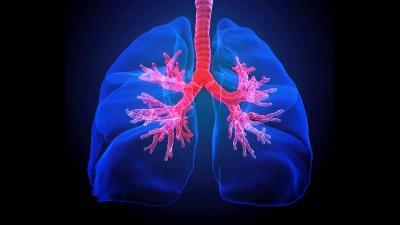Coronavirus Sees Thousands of Lab Animals Killed: Inevitable or Avoidable?

COVID-19 has halted research in scientific laboratories across the globe. So what can we learn from seeing researchers euthanize hundreds of lab animals at once? Could nonanimal research methods make science more resilient in times of crisis?
Recently, STAT reported on the struggles that scientific labs are facing during the COVID-19 outbreak, highlighting the particular challenges for researchers who are still relatively new in their careers. The research of one of the featured individuals involves measuring electrical activity in the brains of genetically engineered mice to gain a better understanding of neurological disorders like epilepsy. When her laboratory shut down, she found herself “euthanizing mice by the masses in the university basement.” As the emergency situation forced her hand, she terminated the lives of some 200 animals. She certainly isn’t alone: Across the country, hundreds of thousands of animals in laboratories have become casualties of the pandemic as researchers shelter at home.
Early-career researchers are particularly vulnerable to an unexpected delay or halt in the progression of their work. Not only are their training and experiments suddenly on hold, but many are now waiting on the degrees they need in order to move forward in their careers, and for others a lack of preliminary data will prove to be a major challenge in obtaining the grant funding to continue their work or, in a worst-case scenario, completely restart their research. Without financial support, this significant delay in their investigations may be too large a hurdle to ever overcome.
Researchers were caught off guard when their labs were abruptly shut down in response to the COVID-19 outbreak. In some cases, scientists were able to freeze cells or preserve tissue samples in formaldehyde to be picked up again later, and three-dimensional cellular models can be re-grown in a matter of weeks. But for those who use animals for their research, the outlook is dire. It will take scientists months or even years to pick back up where they left off.
Biomedical research looks to animals to recapitulate the characteristics of human disease and to drive the development of therapeutics. However, human biological, pathological, and pharmacological events often cannot be simulated in animals due to inherent genetic, molecular, anatomical, and physiological differences.
For example, Alzheimer's disease (and related dementias) is the fifth leading cause of death worldwide, affecting nearly 50 million people. Decades of basic research, drug development, and clinical trials based largely on animals have failed to translate into effective interventions. An astonishing 99.6% of Alzheimer’s disease drugs that succeed in animal experiments ultimately fail to help humans. There are still no treatments that can prevent or reverse the development of the disease.
In an effort to develop and optimize models relevant to humans and increase predictive capacity, a wide range of nonanimal approaches have emerged in recent years, spanning from patient-derived cells (such as induced pluripotent stem cells), three-dimensional spheroids, and complex microfluidics technologies to integrated computer modelling and imaging techniques. The data derived from these models is far more reliable for human applications. While more and more researchers are using them today, additional support and resources are needed.
Hundreds of thousands of animals have been euthanized during the current pandemic. It is irresponsible to attempt to reset research back to the animal-heavy status quo that hampers scientific advancement. Now, more than ever, is an opportune time to invest in human-relevant science. We’ll get the right answers faster, no animal will suffer, and the actual nuts and bolts of research will be more resilient in times of crisis.
We need a paradigm shift away from the reliance on animals. We need to support reliable and replicable human biology-based research for drug discovery and development, medical devices, and more. Until we create a culture that focuses on using human-based research methods that are adaptable to the world we live in, we risk jeopardizing the future of research for generations to come.
One way to accelerate our progress toward ending animal experimentation is to welcome a new generation of scientists who utilize and champion nonanimal methods of research. The Physicians Committee for Responsible Medicine launched the Early-Career Researchers Advancing 21st Century Science (ERA21) program to ensure that emerging scientists are aware of the benefits of using human-relevant research practices and can find opportunities to conduct research using human-relevant methods in order to support scientists as they build their careers using these methods.
The National Institutes of Health (NIH) and other funding bodies must offer early-career researchers the tools to apply nonanimal methods in their work. As the world’s leader in biomedical research, the NIH has a responsibility to invest in developing and promoting nonanimal research techniques and in training early-career scientists in how to use them.
It’s still too early to measure the full destruction caused by this virus and what impact it will have on progress in medical research for years to come. But even now, it’s clear that we must acknowledge the shortcomings of animal-based research. We must build a strong foundation in human-relevant scientific research and set early-career scientists up to succeed, so that humanity may succeed when faced with the next public health crisis.
Janine McCarthy, MPH, is a research policy specialist with the Physicians Committee for Responsible Medicine. She launched the Early-Career Researchers Advancing 21st Century Science, or ERA21 program, which engages the next generation of scientists and connects them to the benefits of human-relevant research.







